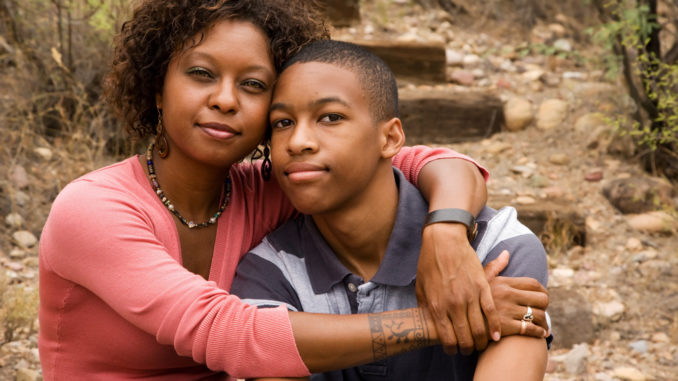
I am often annoyed when some of the ills of the Black community are blamed on the lack of male leadership in the home and family.
Let’s be clear, I believe the disproportionate amount of Black men circulated in the prison industrial complex is intentional and has had a profound impact on the inner workings of our community. I also believe Manhood is a set of behaviors and beliefs that are passed down and taught by men to men and the destruction of that educational process has left a gaping wound that women cannot fill. Black men are definitely needed.
However, I find the “single Black mother as community destroyer” argument racist and based on some serious misogynistic tenor. In fact, the very argument is a white argument (The Negro Family: The Case for National Action by Patrick Moynihan) and it is disheartening that it is perpetuated by our own community against the very women who are simply attempting to hold things together, given the above imprisoning strategy. Our community speaks on women-headed families as if they are new phenomena, a sudden tear in the community fabric, but matriarchal structured households and societies have always existed among Black people since ancient times and some even prospered under female leadership (i.e. Hatshepsut of Kemet, Queen Nzinga of Ndongo and Matamba, the Ashanti Empire’s Yaa Asantewaa).
Perhaps I feel so strongly because my own family is comprised of mostly Black Southern women each carrying bits and pieces of strength from a mighty matriarch named Bertha. She is treated with sacredness and there is a profound level of respect and want for her words and love for her laughter. The Florida chapter of our family began in the early 1950s when Bertha, then a teenager, carried a newborn baby (my grandmother) and ran away from coastal Georgia to the heat and muck of South Florida. That is the blood we are all infused with and it shows. The women in my family are powerful, resilient, and witty, with Bertha’s high cheekbones. We look like her, talk like her, and move like her. We converse with her in an effort to think like her. We handle business like her.
As Bertha walks slower and lingers in bed longer, forgets names and holy recipes, we are all dealing with the reality of her impending transition. We have been very blessed. It has been 33 years since someone in our family passed. But the thought of Ma-ma being that next passing is a bit too much to bear and we are spending more and more time in prayer, contemplating the lessons she taught us and how she showed up as a Black woman in America.
It is not easy being a Black woman in this country, particularly a poor one.
But Bertha led our family through many struggles on her own with dignity and taught us all to do the same in our own mini-families. Bertha is what our community would call a “Big Mama”, the gentle, but correcting matriarch that feels our senses with nostalgia. We all have one so it is safe to say every Black family has been female-headed at some point in time. Some, like mine, are still led by a wo-man and have been for over 60 years.
So let’s not treat Black single Moms as something new that shockingly came into fruition within the last twenty years. Let’s not assert that single mothers are the cause of our community’s most pressing problems. Let’s not overlook the number of single mothers working multiple jobs on the weekends and overnight to feed, cloth, and shelter their children. Let’s not hold accusatory stances that fill Black mothers with shame and guilt, having a profound effect on mental health and, thus, the mental health of her children. We can’t adopt the racist “welfare queen” caricature as truth and admonish families that need assistance.
It is important for our community to insulate our women and children with support, love, and respect. Again, Black women have led some families for centuries so we cannot point the finger solely at them for our community’s struggles. Could it be the changing and increasingly individualistic nature of the Black community that could be the problem? Or could it be that, perhaps, the number of grandfathers, uncles, male cousins, and male community members that typically filled the void of a missing father is dwindling? It is counterproductive at this point in our history to support an argument that divides us. It befits us to focus on the true root of community’s problems (racism) and work with Black women instead of policing their bodies and minds.
Be free, people


Be the first to comment